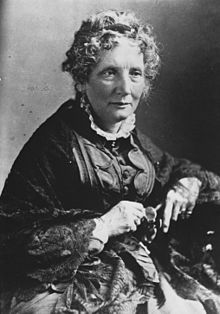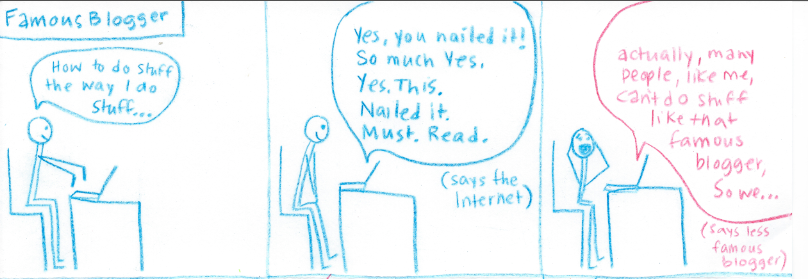I’m currently reading a great book about one of my very favorite writers of old–Harriet Beecher Stowe.
(She was a writer passionate for justice who stood at barely 5 feet tall and was married to a scholar of the Hebrew Bible–how can I *not* love her!?)
Stowe did a lot to win Christians to the abolitionist cause. Before her, Christians in the US were likely to view the Bible as supporting slavery–the patriarchs appear to have owned slaves, for example, and the New Testament doesn’t openly condemn slavery.
{Philemon, in fact, is a letter from Paul in which he’s, um, returning a runaway slave to his master.}
But Stowe–like most Christians nowadays–was right to discern in Christianity–yea, in the Bible!–a redemptive, liberating call–a duty to struggle against slavery. And she took up that struggle–with her pen. When Lincoln met her, he said, “Is this the little lady who has started this great war?”
Thing is, sometimes even Bible people are, well, unbiblical–and admirably so.
You take the book of Ruth.
Ruth’s a Moabite–the text won’t let us forget that–and her ancestors refused to give hospitality in the form of bread and water to the Israelites as they left Egypt.
This insult led to a prohibition against the Moabites in Deuteronomy 23:3:
“No […] Moabite shall be admitted to the assembly of the Lord. Even to the tenth generation [Hebrew-Bible-speak for, ‘seriously, not ever!’] none of their descendants shall be admitted to the assembly of the Lord.”
Complicates things a bit, no?
Boaz doesn’t say, “Oh, hey, I’m sorry for your bad situation, Ruth, but your ancestors insulted mine, so I’m biblically required to do the same to you.” No.
He breaks a ‘biblical’ law to fulfill a Greater Law in sharing bread with Ruth.
And then he marries her.
Does the breaking of the bread trump the breaking of the law?
Hmm...













